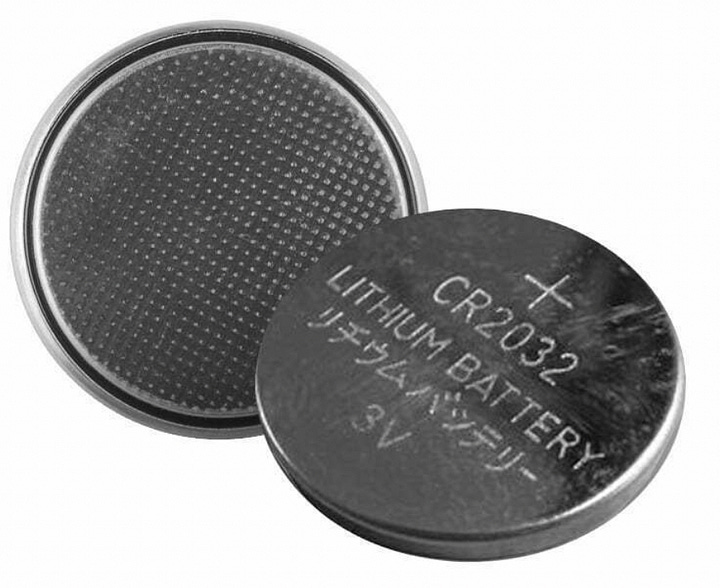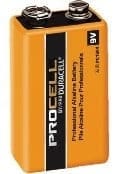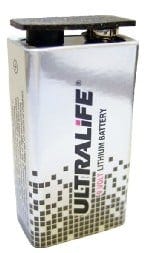Hi Mike,
I have a question regarding small consumer batteries like AA, AAA, D, C and the numerous sizes of the coin-type batteries. This isn’t necessarily an RV related question, but I’m sure RV owners all use these kinds of batteries.
I always collect depleted or nearly depleted batteries in a plastic bag inside a small plastic tub for recycling and then take them to a battery recycling collection point such as Home Depot. I recently had a near catastrophe related to this practice. I put the plastic bag of batteries in my vehicle and stopped at the car wash on my way to recycle them.
Soon after leaving my car with the attendant, she came into the waiting area in a hurry and took me out to my vehicle to show me that one of the coin-type batteries had shorted out and started a small fire inside the plastic bag with all the other batteries. Thankfully, she had pulled the bag out of the vehicle and scattered the batteries on the pavement to prevent the fire from spreading.
To say the least, I was terrified by this. I have now taken to placing electrical tape on the contacts of all of my discarded batteries to prevent a recurrence of this event. My question is whether or not this is necessary or is it just a risk with the coin type lithium batteries? What is the proper way to collect, save and recycle the various types of batteries?
Thanks - Peter K
Hey Peter K,
You’ve seen first-hand how a bag of “dead” batteries can create a short-circuit on one or more batteries which can cause overheating and a fire that could spread through the entire pile. This is especially dangerous for Lithium-ion coin-cell and power tool batteries which can quickly can go into avalanche failure when shorted out. I don’t think that a bag of cylindrical AA, AAA, C or D batteries could easily short out. But I imagine that if you tossed them in a drawer with a bunch of loose bolts or other metal hardware it’s possible for a short to occur.


So any “Dead” battery (especially lithium) should have its terminals wrapped with tape prior to bulk storage for recycling. I generally use electrical tape, but I’ve heard from one recycler that they prefer cellophane tape (Scotch Tape) since it’s easier to remove. But I don’t have confirmation on that fact yet. However, any type of tape should prevent battery short circuits from occurring.
Read my very personal story on a 9-volt battery meltdown
Dear Mike,
I recently read where a 9-volt battery thrown away in a trash can can started a fire in a garage. Can this really happen? What do we have to do to keep safe in our RVs? —Donny F.
Dear Donny,
In a word, YES, a 9-volt battery can start a fire. So let’s explore why a 9-volt battery can be a fire hazard, and under what circumstances.
But first, a short personal story about why I know this. Perhaps 25 years ago I was doing a big sound gig outside for the Maryland Symphony Orchestra on the 4th of July. So it was hot and sunny, and I was crawling around on stage setting up 60 microphones. Some of my wireless mics used standard 9-volt batteries, just like the ones you’ll find in most smoke detectors and many transistor radios. You know, the ones that look like a little rectangular cube with a pair of contacts on the top.
And those contacts are uninsulated, which is why I literally had hot pants that day. You see, I had stuffed a new 9-volt battery in my pocket, along with some loose change. I didn’t think about this until I noticed my leg feeling hot. At first I assumed it was the hot sun beating on my leg since I was laying on the stage under some chairs running cables. But the heat soon got unbearable and I reached down to feel my pants, which were REALLY hot.
When I jumped up I noticed my jeans were smoking. Yes, literally hot pants. What had happened was the 9-volt battery in my pocket was shorting out on the quarters in my pocket and were now too hot to touch. A few more minutes and my pants could have caught on fire. Of course the other guys in the crew thought it was pretty funny, and I was amused if a little burned.
Why did this happen?
A standard 9-volt battery has a lot of energy in it. After all, it can power a smoke detector for a year or more and run a transistor radio for dozens of hours. And if that energy is released quickly, it converts into a lot of concentrated heat. So any metallic object bridging the terminals on the top of the battery will create a short circuit which quickly causes the cells inside the battery to overheat and catch on fire in minutes.
Normally when these batteries are sold they’re packaged so the terminals can’t contact anything metallic. But throw a 9-volt battery in your junk drawer and anything metallic can accidentally come into contact with the terminals as your RV is driving down the road. If that occurs, you can have a fire start inside your your vehicle in a few minutes, and there are few things more scary than a fire in an RV, especially if you’re driving down the interstate.
How to keep safe…
Many industrial-duty batteries like the one above have a little plastic insulator tab on the top you remove before installation. This prevents them from shorting out by making accidental contact with anything metallic. You should always “cap” any 9-volt battery that’s not installed in a piece of gear. Even when they’re “dead” there’s still enough power left in a 9-volt battery to start a fire. And don’t do like some of the churches where they go through a bunch of batteries every week and just throw the used ones in a bucket. That’s a sure invitation for a fire to start.
If you don’t have a plastic cap on your battery, then a simple wrap of electrical tape over the top of the battery will protect it from short circuiting and catching on fire.
We always put a wrap of black electrical tape around any “dead” batteries during a show so we know they’re not to be used. And some of my stage crew put a wrap of green or yellow tape on any new batteries that don’t have a factory insulator tab so we know they’re brand-new and ready to be put in Beyonce’s mic (or whomever).
Don’t believe me… Read this!
Duracell, a manufacturer of 9-volt batteries, and the National Electrical Manufacturers Association, a trade group that represents battery makers, provided these tips:
Always keep all batteries in their packages before use.
Don’t carry 9-volt batteries in your pocket – keys and coins can short the battery.
Cover the terminals of all loose batteries with electrical tape.
Never store or dispose of batteries near flammable substances.
Follow these tips with other batteries as well. All batteries can short circuit.
It’s a simple solution that only takes a minute and it could potentially save your life. And here’s a video of one house that went up in flames when a homeowner put a paper bag of “dead” batteries in the garage. Don’t let this happen to you in your RV.
Let’s play safe out there… Mike










Mike, I had this happen to me with a AA new battery. I stuck it in my pocket with a set of keys on a keychain. I felt something hot in my pocket, no smoke yet, and when I stuck my hand in the pocket I realized it was the battery and quickly pulled it out. I now carry the batteries in the original container until I get to where i need them and always wrap the old ones before tossing them away. I'm always concerned that they will come in contact with somethin metal in the trash and start a fire. Chuck
Some years ago, we got a notice at work about loose batteries in desk drawers being a hazard. "Yeah, right." A few weeks later I pulled open my desk drawers where I kept a few AA batteries for spares and saw the burn marks where one had shorted with the loose paper clips that were in the same section. It was a Holy Shi* moment and I did some rearranging of how I kept the batteries.